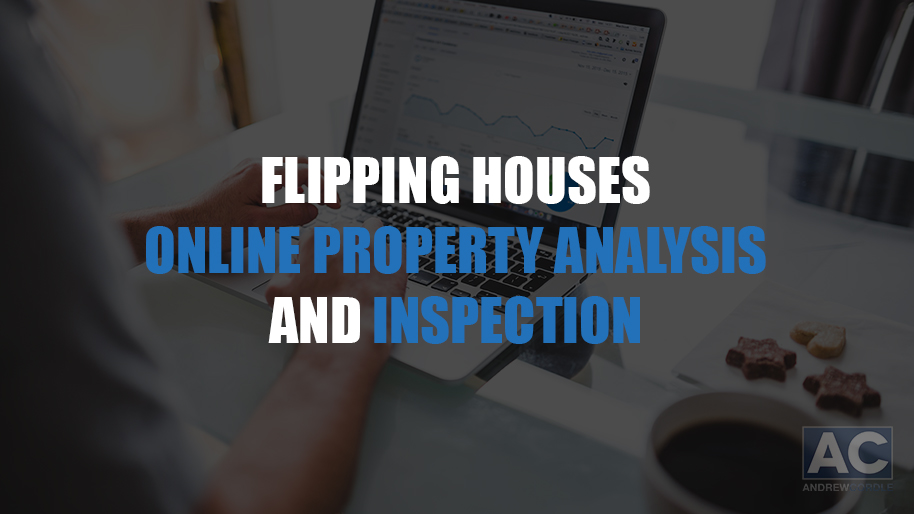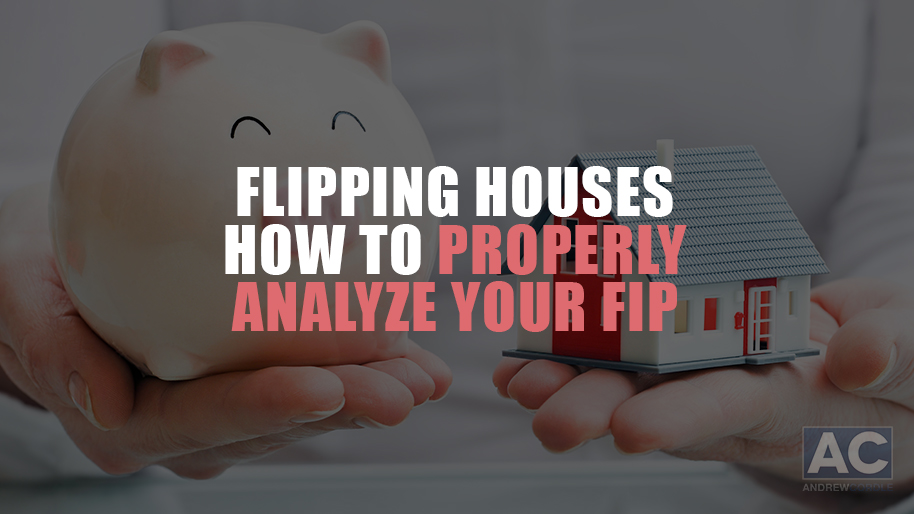Blog
Season 1, Episode 01: How I Got Started in Real Estate [Podcast]
December 17, 2014Listen to the Audio http://andrewcordle.me/wp-content/uploads/2015/08/iflipuflip-s1e1.mp3Podcast: Play in new window | Download Click here for audio. Watch the Video Click here to watch the video. In the very first edition of iFlipuFlip we will be discussing: A brief overview of my last 10 years as a real estate investor The cheapest house I’ve ever bought (Hint: It was under 3 figures!) Types of events we’ve attended Why we are launching our podcasts in January The success of our blog posts on my website Why I’ve really backed off of my traveling How our level of professionalism goes from our website to the podcast and into everything we do. The current state of my business, from the Midwest to the East Coast How NOT to become a real estate guru for $995.00 My first successful flip The first time I grew my business What happens after you take 14 vacations and the real estate market crashes How I learned from my mistakes and built a better, more secure company How you can build your own secure successful company I look forward to using this podcast as a way to help all my listeners to become better investors, no matter what your level of experience, and to working with you all on future podcasts! “Success is not final; failure is not fatal: It is the courage to continue that counts.” -Winston S. Churchill Click To Tweet Binge on All of the Current Episodes! If you want to listen to more episodes, you will find all of the currently released episodes of Season 1 Here. I release both audio and videoepisodes weekly. Share the Love If you enjoyed this week’s Podcast, please rate it on iTunes and write a brief review. That would help tremendously in getting the word out and raising the visibility of the Podcast. Subscribe to my Podcast ...
read moreFlipping Houses: Online Property Analysis and Inspection
December 16, 2014So you’re going to go ahead and attempt an online property analysis? You’ve just received an email from your wholesaler who sent you a solid lead on a potential flip house. Now, let’s talk about completing an online property analysis right there from your desk. When I receive a quality lead from one of my wholesalers, if I don’t have the time to complete an offline/on-site property analysis, I will do an online property analysis right from my computer. The first step of course is to verify everything online. We always do this first. So, I’m going to look for the following two things: 1. The CMV – this is the “current market value.” The CMV is what your house is currently worth “as-is” 2. The ARV – this is the “after repair value.” The ARV is what your house will be worth after all the repairs are made There are three ways to determine both the CMV (Current Market Value) and the ARV (After Repair Value): 1. The “Comps” or “comparables”. 2. Have a real estate agent or broker run a CMV – there is a cost attached to this 3. Have an appraiser complete an property appraisal. NOTE: Appraisers are also able to do a CMV and an ARV) – there is a cost attached to this You can also have an agent or broker run a CMA (Comparative Market Analysis) or an appraisal completed by a licensed appraiser. We aren’t able to complete a CMA or appraisal as one must have a special license to do this. So I will usually hire an outside professional when I need this done. An appraisal runs about $250-450. However, at this point, you’re trying to compare the comps on your own to save time and resources. When you’re doing online inspections, before you compare the comps, understand that there are four different types of properties: 1. New construction – these are homes that have recently been built and no one has lived there before or currently 2. Rehabbed house – these are flip homes that an investor has purchased, repaired, and placed back on the market 3. Homeowner property – these are homes that are currently owner/tenant-occupied but is up for sale 4. REO (Real Estate Owned) or HUD (Housing & Urban Development) – these are bank or government foreclosed homes The most important thing I look for are the comps. I’ve been asked the question, “what is a comp (comparable)”? To determine the value of a house, an appraiser or an agent will typically look at three comparable sales in the area, or “comps” as they are known in the industry. Agents and Appraisers have access to the Multiple Listing Service, known as the MLS, which is a database of all the properties in a given area that have been listed “for sale”, are in process of being sold (pending,) or have already been sold. Without being an agent or an appraiser, you may have a harder time accessing this information. Additionally, you can ask your agent for a list of comps. Which should be easy and free for your agent to supply to you. In my next property analysis and inspection article, we’ll discuss “comps” in much more detail. ...
read moreDIY: How to Flip a House – Houses 1 of 15 (Video)
December 16, 2014In this video, Andrew shows you how to flip a house by executing the perfect system. For demolition, design, and display in many different areas of the physical property. Andrew has spent the last decade showing investors of every experience level how to flip a house. Now you can learn how to flip a house! ...
read moreFlipping Houses: How to Properly Analyze Your Flip
December 16, 2014When one is learning how to make money in real estate by flipping houses, property analysis defined is “a study made to familiarize one with the nature and condition of a building, its relative market position, and its estimated income and operating expenses”. Flip analysis and property inspection can be a make or break scenario for many real estate investors. It’s at this point when one determines whether or not your property has value or it’s a dud. There are two extremes that most investors can be categorized into: 1. The investor that over-analyzes the deal. This is often referred to as “analysis paralysis.” Beginner investors are often so anxious about the deal that they spend far too much time analyzing the rent rate, the cap rate, days-on-market, and every other little tiny detail regarding the property and the neighborhood. These investors overanalyze the deal to such an extent that while they’re wasting time overanalyzing the deal, another more seasoned investor, who can make their decision in ten minutes, swoops in and stalls the deal. Before you know it, the deal is gone while you’re still pouring over color combos on seventeen different pie charts! 2. The investor that doesn’t analyze anything and has no clue as to what is currently going-on in their market. They have no idea whats driving the market in their area, and just heard a rumor from their wholesaler that they’ve found a good deal…so they buy it without doing any research! In reality, these investors have absolutely no idea what they just bought and are never able to establish the true ARV for this investment. The successful investor, however, does their best to stay somewhere in the middle. They know their market and what drives it. Consequently, they are able to quickly determine whether or not it’s a quality deal. This is something that every investor must learn how to conquer or risk being left in the dust of more experienced, successful flippers. For example, just in the past week, I received an email from one of my wholesalers listing a buy/fix/sell in my current investment area. Within twenty minutes, we were on-site analyzing the deal. Ten minutes later, we were under contract! So within thirty minutes of receiving an email, we had the property. This is further proof of how quickly the market moves and is one of the ways that I’m able to stay heads-above my competitors. There have also been times which I received notification of an available property that was so good that I bought it right there on the spot – “site unseen!” I never left my desk. This is not me recommending this course of action for everyone, every time. The point is to give readers an example as to how fast the current market is moving. One must learn to quickly analyze a property! In this series, my plan is to teach you the two major components to analyze a property: 1. Online analysis 2. Offline analysis 1. Online analysis is about analyzing the property right there from your desk. There are always specific stats that we check to assign value: location, neighborhood, what homes have sold recently in that area, schools, crime, average days on...
read moreDIY: How to Flip a House – Kitchen 2 of 15 (Video)
December 16, 2014When we’re teaching investors how to flip a house, the importance of the kitchen rehab cannot be stressed enough. Kitchens sell homes! In this video, Andrew shows you how to flip a house. Rehab that kitchen so the end result is a top-notch, eye-catching product! Our video library helps any investor learn how to flip a house. ...
read more

































